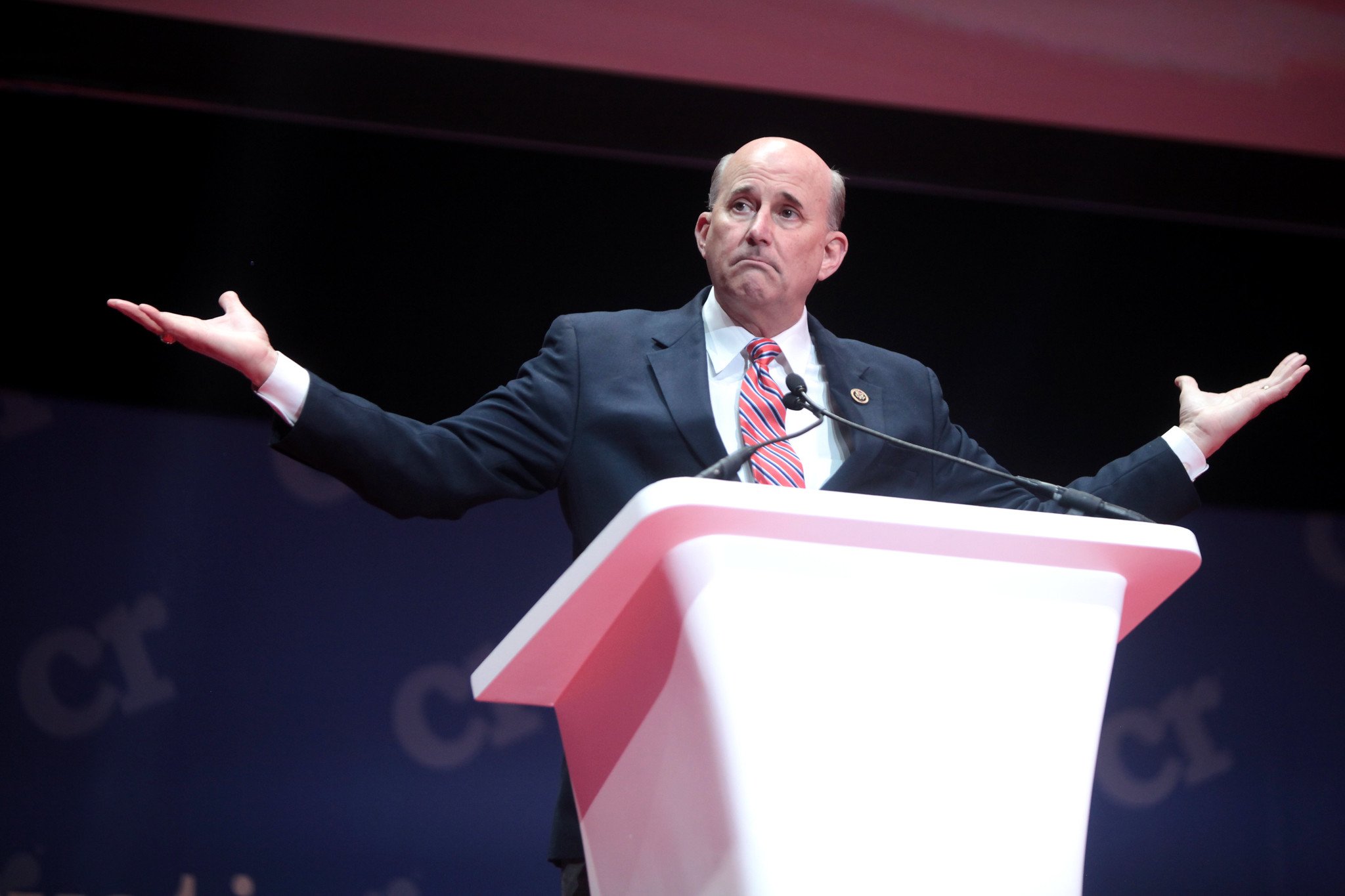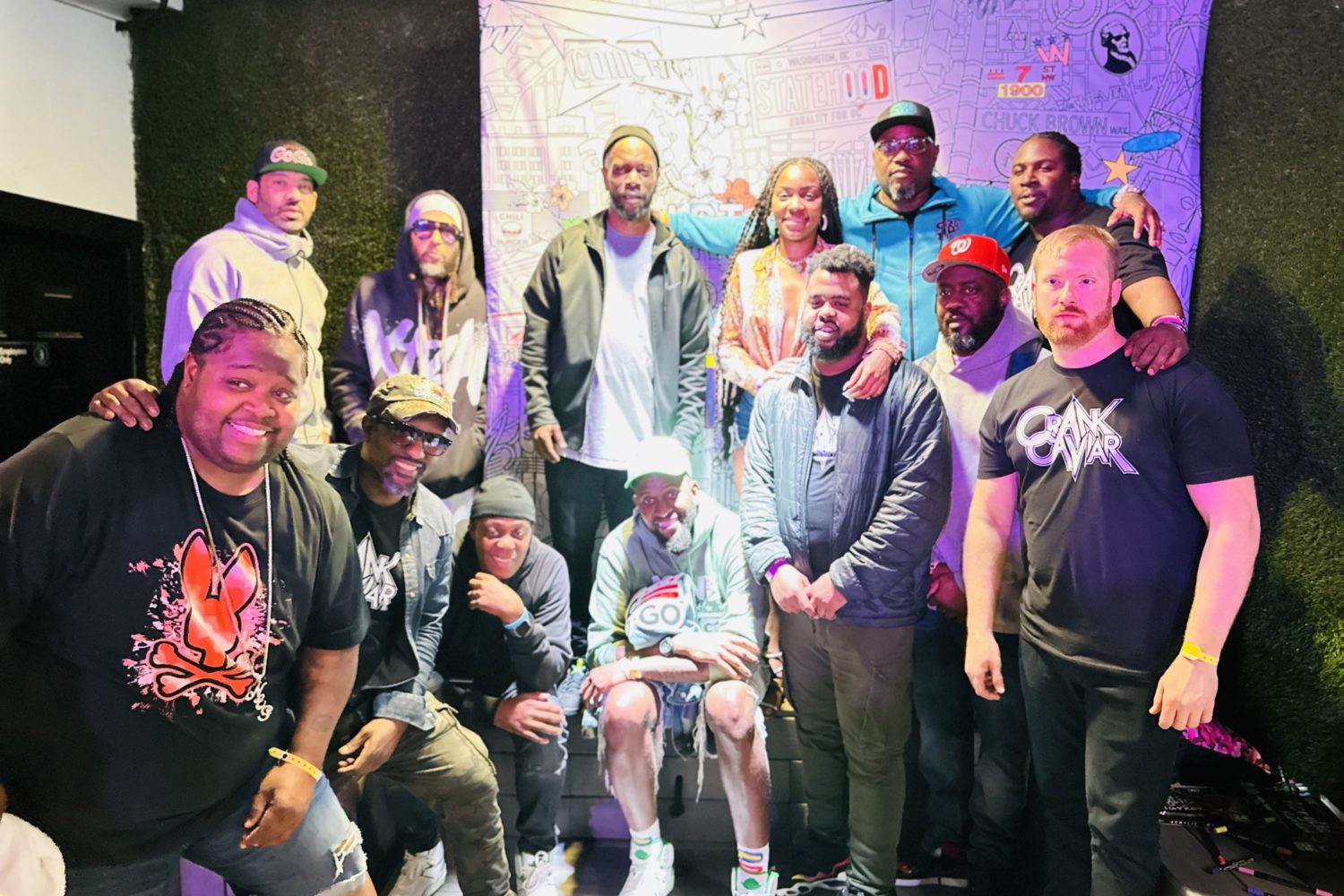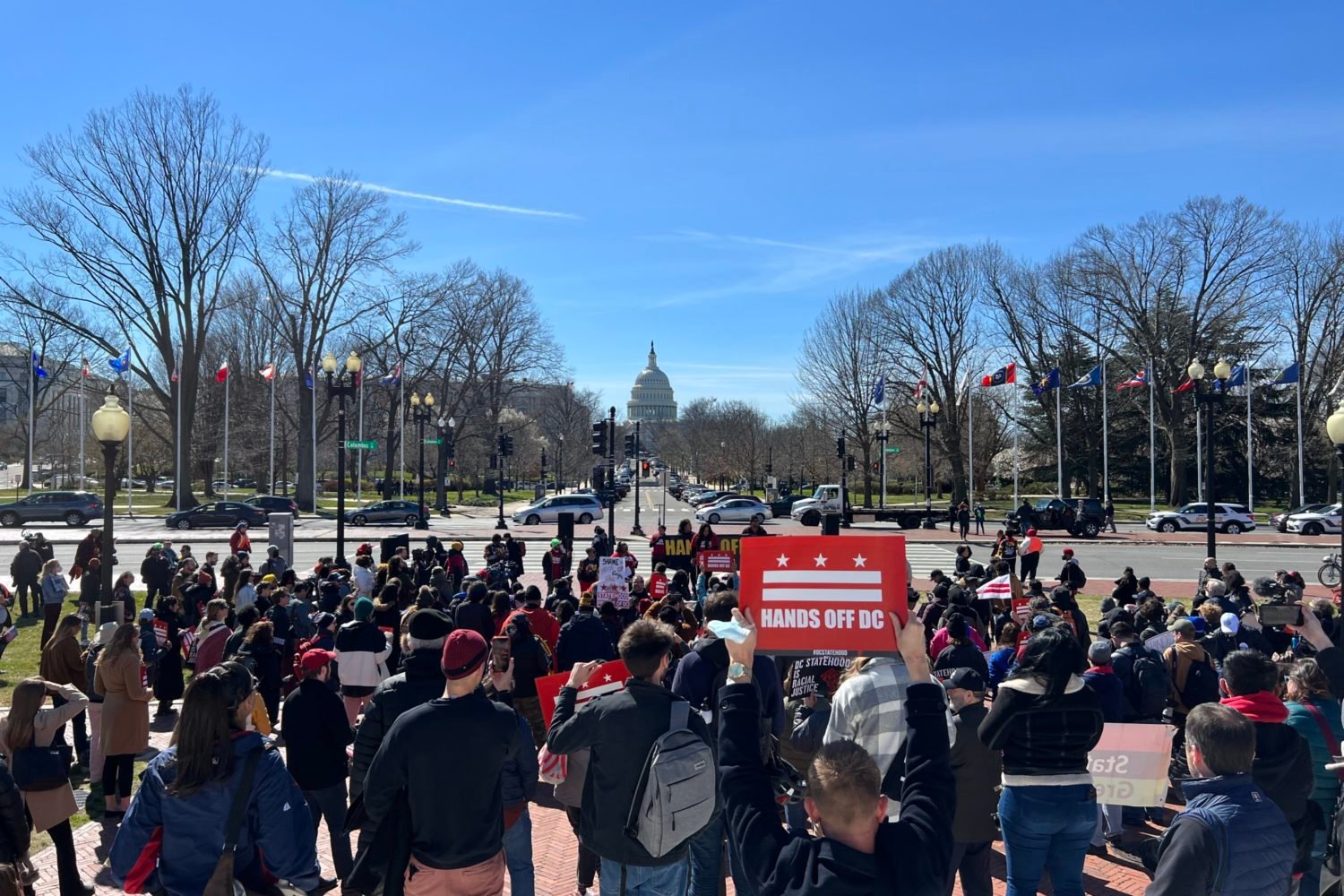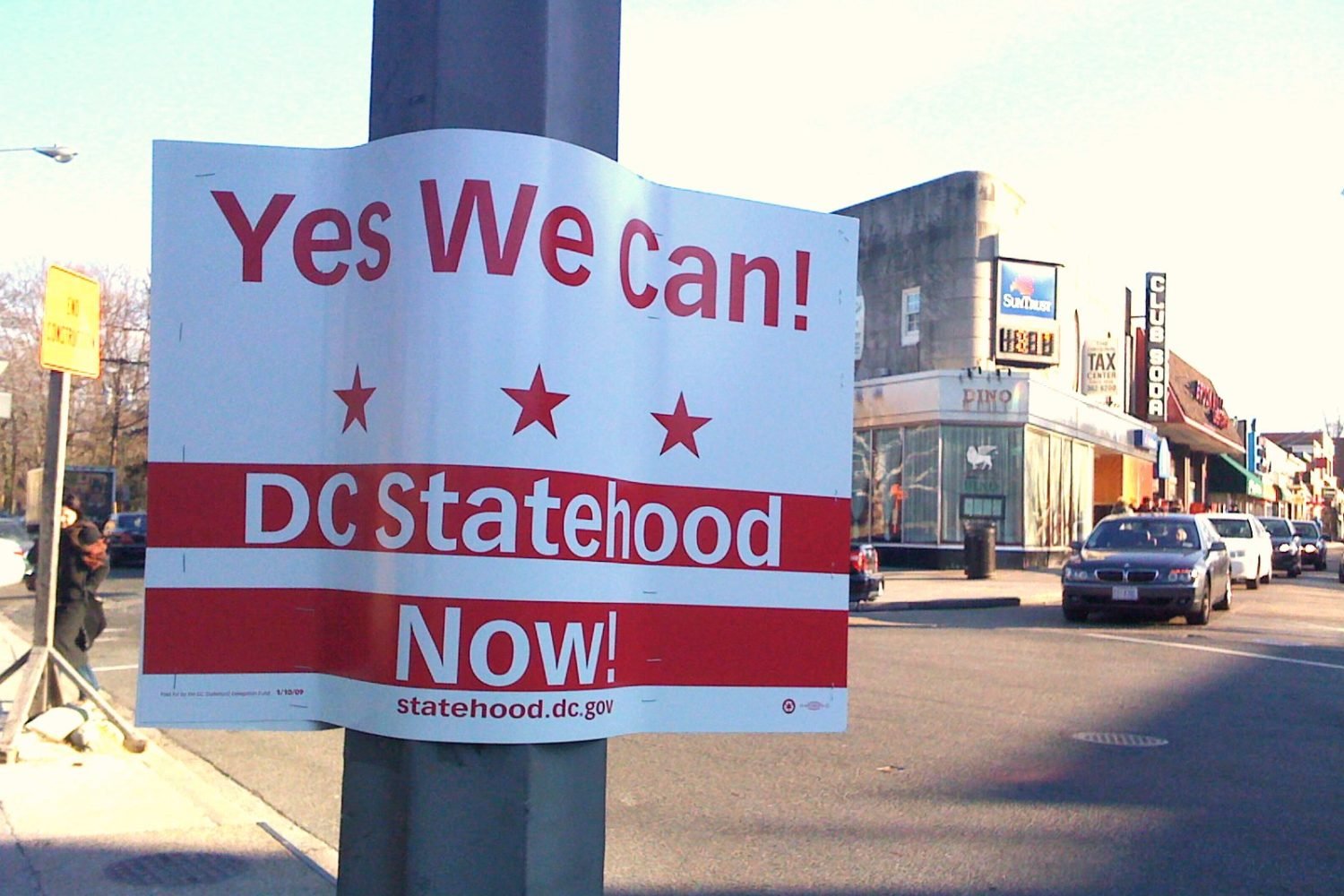The Congressional debate ahead of Friday’s vote on DC statehood featured the standard cavalcade of idiocies from statehood opponents.
There was the old argument about population size. Alabama’s Mo Brooks, for instance, announced that he would “never vote to give a single, middling-size city the same power as one of America’s 50 states,” a logic that might also require the United States to expel the likes of Wyoming, Vermont, and Montana from the Union.
There was a familiar refrain about governing competence. “DC is not prepared financially and otherwise” for statehood, explained Georgia’s Jody Hice. “[Congress] bailed it out in the 1990s after 20 years of self-rule.” Though that argument was perhaps more effective when the District was a financial mess and Congress had Marion Barry to kick around, the idea of tying Americans’ right to representation to the effectiveness of their local government is problematic on its own—especially to a politician from a state that apparently can’t do something as simple as administer an election without looking like a banana republic.
And there were some comparatively new arguments, such as Wisconsin Republican Glenn Grothman’s assertion that DC’s lack of “agriculture, manufacturing, mining, or logging” renders it unworthy of statehood. Or the earlier claim by Arkansas Senator Tom Cotton that the “encirclement” of the Capitol by an individual state would lessen the president’s ability to send in the troops—and pose a mortal danger should a new Civil War break out. (“It is nice to see Cotton, who recently spoke out in defense of memorializing the traitors in the last Civil War, implying that he wants the Union to win if there’s another one,” noted New York’s Jonathan Chait.)
To some extent, the anti-statehood orators—all Republicans—were hamstrung because their own president had already given away the game. In an interview last month, President Trump skipped the more elaborate arguments about agricultural populations and insurrectionary risks and explained, accurately, that it would put him at a partisan disadvantage. “You mean District of Columbia, a state? Why? So we can have two more Democratic—Democrat senators and five more congressmen? No, thank you. That’ll never happen.” (In fact, DC’s population would entitle the new state to one member of congress, not five.)
Weirdly, the one anti-statehood speech that deserves to be grappled with came from a member usually associated with the Congressional GOP’s most buffoonish ideas: Texas Representative Louie Gohmert. After sharing a familiar litany of reasons why Washingtonians should not have their own state, Gohmert actually engaged with the no-taxation-without-representation argument that remains the moral core of the movement for statehood.
Gohmert’s idea: Instead of changing the “without representation” part, change the “taxation” part.
“One of the things that we agree on is that it is wrong to make people who are residents of the District of Columbia pay income tax,” Gohmert said. He noted that he’d been filing a bill since 2008 to do that.
DC’s political leadership, generally, has said thanks but no thanks.
But play out the hypothetical and you see why it’s such a natural for Republicans—and not much of an incentive for many DC residents. Turning the capital into a city-sized tax haven would immediately pour gasoline on the city’s already-pricy real estate market, in neighborhoods rich and poor alike. Among high-income people, even someone who hated the idea of urban life would consider moving to a rowhouse in Eckington if that meant eliminating their federal income tax bill.
This change would benefit some locals, of course—particularly those who already own property or those who pay a lot in taxes. For lower-income Washingtonians, or the majority of the residents who are renters, not so much: Many of them would find themselves priced out.
But there’s one other population whose lives would be vastly improved by what amounts to a gentrification-acceleration measure: GOP populists who love nothing more than beating up on a caricatured version of the capital, and don’t mind an even bigger hole in the federal budget.
Turning the city into an American mainland version of the Cayman Islands actually would speed Washington’s evolution into a place populated exclusively by deep-pocketed, tax-avoiding insiders. That caricature, beloved by anti-government types on right and left, tend to fall apart when confronted with the fact that the city also houses plenty of bus drivers, soccer moms, church deacons, and other tough-to-demagogue populations. But if, instead of giving a heavily minority, overwhelmingly liberal city a pair of Senators, you give it a tax break, you not only protect the GOP’s majority—you turn the capital into an even more dependable punching bag next time you want to slash some federal agency.
Plus, the next time protests get explosive, the newly imported locals will likely agree when Senator Cotton tells the White House to call out the troops.

















